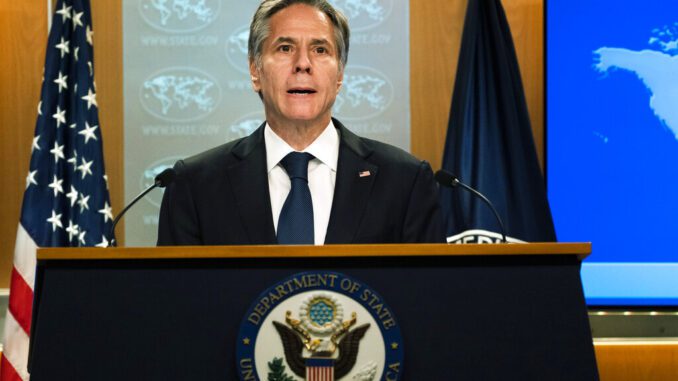
WASHINGTON, D.C. — The Biden administration is formally inviting United Nations racism and human rights envoys to visit the United States amid a contentious ongoing domestic debate over the treatment of minorities in America.
The State Department announced late Tuesday that the administration would issue a standing invitation to all U.N. envoys, known as special rapporteurs, who compile information on race and discrimination and report back to the world body.
Secretary of State Antony Blinken also welcomed the adoption of a resolution by the Geneva-based U.N. Human Rights Council to address racism directed against Africans and people of African descent.
In a statement, Blinken said President Joe Biden’s administration “is deeply dedicated to addressing racial injustice and inequities at home and abroad.”
He said the administration would “lead by example” on the global stage by allowing international scrutiny of its own issues and publicly confronting them.
The invitations are a sharp contrast to the Trump administration’s disdain for U.N. approaches to the matter.
Former President Donald Trump, for instance, had pulled the U.S. out of the Human Rights Council over its treatment of Israel and the presence of numerous autocracies in its membership.
In a statement, Blinken said “great nations such as ours do not hide from our shortcomings; they acknowledge them openly and strive to improve with transparency.”
“In so doing, we not only work to set the standard for national responses to these challenges, we also strengthen our democracy, and give new hope and motivation to human rights defenders across the globe,” he said.
As a first step, Blinken said the U.S. had invited the U.N. special rapporteur on contemporary forms of racism and the U.N. special rapporteur on minority issues to make official visits to the United States. Invitations to other unspecified U.N. envoys who deal with “thematic human rights issues” will be forthcoming, he said.
There are dozens of U.N. special rapporteurs, including many who cover human rights in specific countries. But there are also a number who handle broader rights-related issues, including torture, xenophobia, extreme poverty, the treatment of women and girls and indigenous peoples and environmental discrimination.
“Responsible nations must not shrink from scrutiny of their human rights record; rather, they should acknowledge it with the intent to improve,” Blinken said.



